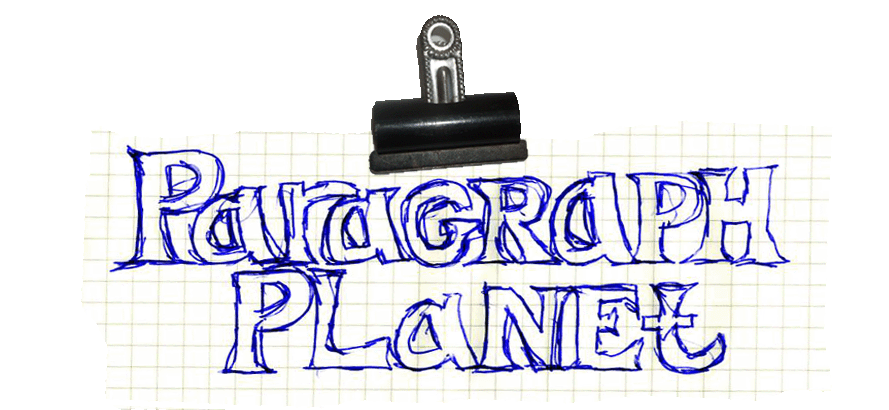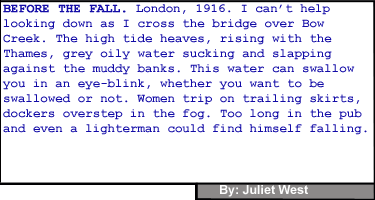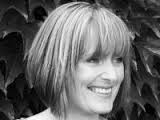
Juliet West Interview

Juliet talks to Paragraph Planet about her new novel 'Before the fall'

1 - Tell me about your latest novel 'Before the fall'
The book is set in the East End of London during the First World War and tells the story of Hannah Loxwood, a young soldier's wife who falls in love with another man while her husband is away fighting. It's based on a true story which I researched while working as a journalist many years ago. I wanted to explore the lives of working class women during this turbulent time, and to understand how the calamity of the war impacted on family life. It's hard to know how to sum up the novel; my editor described it as a 'devastating love story', and I wouldn't argue with that.
2 - What's your favourite stage of the writing process?
Does research count as part of the writing process? I wanted to write this book for years, but always felt daunted by the idea of historical fiction and the endless hours of research that would involve. In fact, I enjoyed every minute of the research and had to drag myself away.
In terms of actual writing - it's often a slog, and I can get fidgety. I manage to grind out a hundred words or so, then break off to clean the house, hang washing, pull up weeds etc. But I don't really see this as procrastination. So long as I keep the book in my head, I'm working through problems and questions and sometimes the answers emerge. Then, if I'm lucky, I'll hit a seam and once back at my desk the writing flows effortlessly, almost subconsciously. The feeling of exhilaration afterwards is hard to beat. Definitely my favourite part of the process.

3 - How did Before The Fall change over successive drafts?
The structure of the book didn't change significantly, but I did cut around 10,000 words from the original 93,000-word draft. I deleted several cafe scenes (there was a lot of onion chopping in the kitchen), killed off one minor character, and worked on developing the back story of the male protagonist.
4 - How important is an online presence to a writer?
I think the jury is out in terms of actual book sales, but a website and at least one form of social media seem to be essential if you're to be taken seriously as a new author. Having said that, I had virtually no online presence when I submitted to agents in March 2013 - just a couple of stories published online and a few features on the short story forum Thresholds.
I'm now in the process of developing an author website, and I've been using Twitter for a few months. To my surprise, I love it. Yes, it's a distraction, but I've learnt a lot through fascinating links and conversations, and made contact with fellow writers and book-lovers.
5 - Any tips for aspiring writers?
You have to put the hours in. So this means looking at your life as a whole, and working out how you can free up time for writing. It can seem impossible, especially if you have a job and a family. My own tactic (not always successful) is to avoid TV and wine in the evenings so that I can clear emails, help the children with homework, sort out admin/phone calls etc. Then by the morning I should have time to write. That's the theory.
Also, (and this is common advice, I know) do read as much as you can. Some writers worry they will be 'infected' by other authors if they read while they write, but I think if your story and your characters are strong, your own voice and writing style will shine through.
6 - What's your next writing project?
Another historical novel, but not a sequel. This book is set in West Sussex and London during the summer of 1935.
Visit Juliet's website here.
Paragraph Planet is a creative writing website which has been publishing one 75-word paragraph every day since November 2008. Famous authors, aspiring writers and occasional dabblers have all got involved, submitting a mixture of twist-in-the-tale flash fiction, evocative short, short fiction, openings of published novels or brief moments captured. Get involved here. You can read over 2000 examples in the archive section. There are also interviews with some of the published authors who have submitted to the site, as well as an authors page in which you can read an example paragraph from all authors who've submitted, and also link to dedicated pages with more info about regular contributors. There's also a Blog Directory of authors who've contributed to the site.



